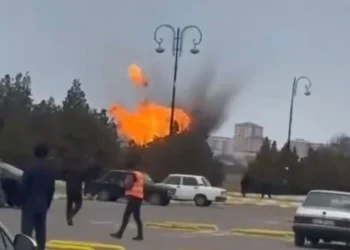The UK’s Foreign, Commonwealth & Development Office (FCDO) has updated its advice for British nationals in Georgia, maintaining a warning against all travel to the breakaway regions of South Ossetia and Abkhazia and urging heightened caution elsewhere amid a volatile political climate and general security risks.
The guidance underlines a globally elevated terrorism threat to UK interests and nationals. While no recent major incidents have been confirmed in Georgia, attacks “cannot be ruled out,” the FCDO notes, adding that potential targets include areas popular with foreigners such as tourist sites and cultural events. UK Counter Terrorism Policing resources are recommended for practical precautions and response tips when abroad.
Domestically, the political situation remains tense. On 4 August, Georgia marked the 250th consecutive day of demonstrations, some of which have turned violent, particularly in Tbilisi around Rustaveli Avenue, Chavchavadze Avenue and Heroes’ Square, though marches can start or finish elsewhere and often continue into the night. With municipal elections scheduled for 4 October 2025, the FCDO warns of a heightened risk of rallies and sudden escalations. Travelers are advised to monitor local media, avoid large gatherings, and follow directions from authorities. Participation in protests could lead to questioning on departure or refusal of re-entry. Outstanding fines can also block exit from the country.
While overall crime levels remain low, the FCDO places particular emphasis on drink spiking. Visitors are advised to buy their own drinks, keep them in sight at all times, and be wary of unsolicited invitations to clubs or restaurants. Reports indicate that strangers may offer food or drink laced with drugs, putting travelers at risk.
Georgia’s equality laws protect human rights, yet the FCDO cautions that ethnic minorities and LGBT+ people may face discrimination or harassment, and advises calling 112 if threatened. Travelers should carry passports when requested by police or service providers and show cultural sensitivity—particularly outside cities and in places of worship—where modest dress and restraint with public displays of affection are advised.
Payments must be made in lari even if prices are quoted in foreign currency; travelers’ cheques are rarely accepted and ATMs can be scarce in rural areas, so cash is recommended for remote trips. Drug laws are strict, with severe penalties—including lengthy prison terms and heavy fines—for possession, use, or smuggling, and airports employ robust detection technology. Photography of sensitive sites such as military facilities is prohibited, and drones require official registration and, in most cases, a special licence.
The advisory notes that same-sex sexual activity is legal and anti-discrimination laws exist, but societal acceptance is limited and Pride events have repeatedly been canceled due to security concerns. The FCDO also flags an expected Georgian parliamentary move to ban commercial surrogacy for foreign couples, warning of legal complexities and urging specialist advice.
Trade with South Ossetia and Abkhazia is tightly regulated and requires a Georgian government licence; violations can trigger civil or criminal penalties. Adventure travelers are told to ensure insurance covers planned activities, as emergency response in remote mountains can be limited. Off-piste skiing is considered dangerous, avalanche information can be unreliable, and past accidents—including a 2018 ski-lift malfunction in Gudauri and a 2019 tourist helicopter crash near Stepantsminda—illustrate variable safety standards.
Transport guidance highlights risks from poor lighting, erratic driving, and severe weather, with livestock and landslides common on rural roads. Travelers are advised to pre-book taxis through apps, check seatbelts, and avoid drink-driving given Georgia’s lower alcohol limits.
Georgia experiences frequent small earthquakes—the most significant recent event was a magnitude 6.2 in 2022—and summer wildfires, especially in mountain regions. Travelers are urged to familiarise themselves with emergency guidance for natural disasters before visiting.
Image: Getty Images/iStockphoto)














